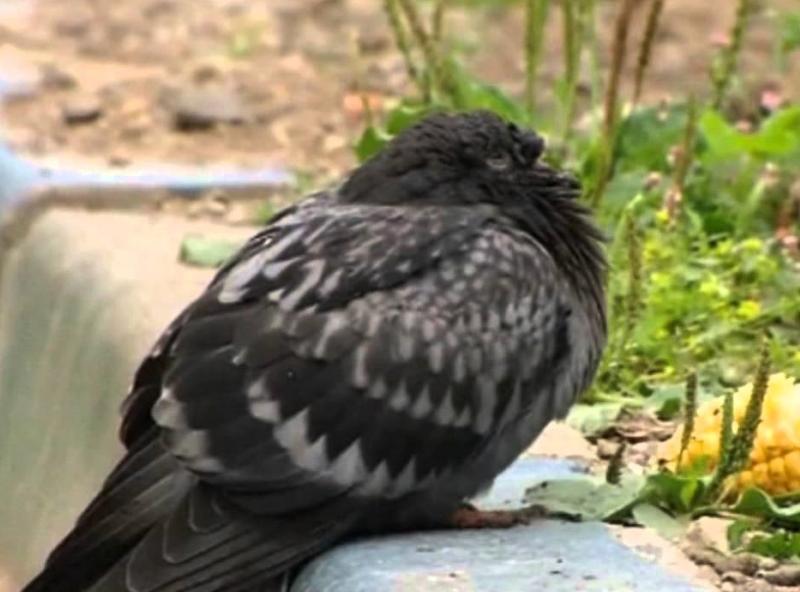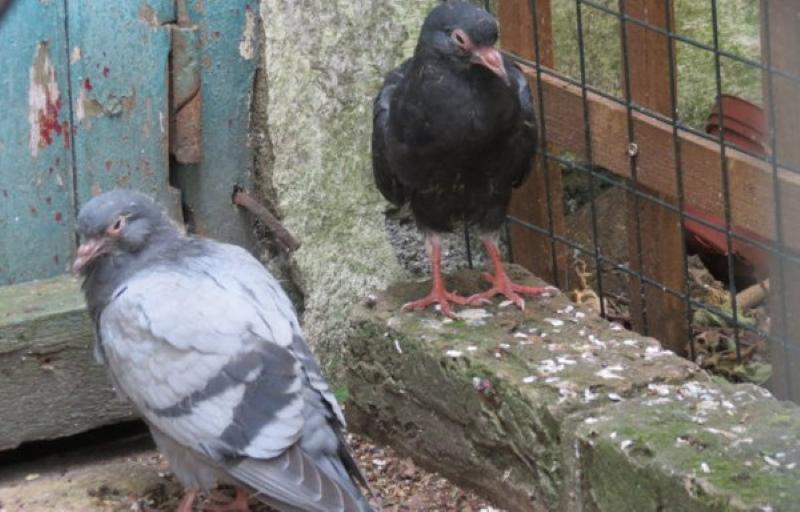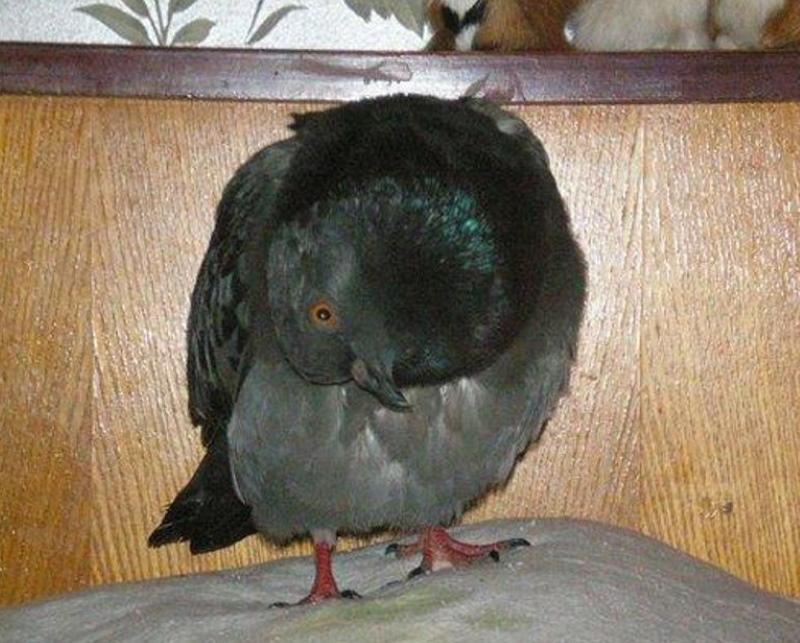A quick guide for the pigeon breeder - pigeon diseases and their symptoms
 Breeding pigeons is troublesome. Even in a wild flock, only the strongest individuals survive, and poultry in the same way can suffer from various infections, some of which are dangerous to humans. Therefore, breeders must always be on the alert, and know at least the main diseases of pigeons and their symptoms. Then there will be a chance to notice and isolate a sick bird in time, because it can become a source of infection, both for the whole flock and for a person.
Breeding pigeons is troublesome. Even in a wild flock, only the strongest individuals survive, and poultry in the same way can suffer from various infections, some of which are dangerous to humans. Therefore, breeders must always be on the alert, and know at least the main diseases of pigeons and their symptoms. Then there will be a chance to notice and isolate a sick bird in time, because it can become a source of infection, both for the whole flock and for a person.
Diseases of pigeons and their symptoms

Most often, pigeons get sick if they are not looked after. A poor diet, a dirty dovecote, which is rarely cleaned and in which there is little light, are the main ways of infection. They can also catch an infection from wild pigeons.
The most common pigeon diseases
Most often, pigeons suffer from:
- twirls;
- smallpox;
- psittacosis;
- salmonellosis;
- trichomoniasis;
- coccidiosis;
- paramyxovirus infection;
- tuberculosis;
- candidiasis.
Since the symptoms of diseases are similar, it is better to call a veterinarian to establish the exact disease. Salmonellosis, whirligig and psittacosis are the most dangerous of them, because they can be transmitted from birds to humans.
Twig or Newcastle disease
 Symptoms: the nervous system is affected, the bird falls into apathy, ruffles. Convulsions begin in the sun, pigeons can fall right in flight and beat on the ground in convulsions. In the last stages, they are paralyzed, their neck twists.
Symptoms: the nervous system is affected, the bird falls into apathy, ruffles. Convulsions begin in the sun, pigeons can fall right in flight and beat on the ground in convulsions. In the last stages, they are paralyzed, their neck twists.
Treatment: possible only in the early stages with the help of the immunomodulator Fosprenil.
Smallpox
 Symptoms: conjunctivitis, rash on the head, then on the mucous membranes. Appetite disappears, feathers ruffle. With the cutaneous form of smallpox, spots appear that turn into scabs. In the diphtheroid form of smallpox, the respiratory organs and intestines are affected, on which growths are formed.
Symptoms: conjunctivitis, rash on the head, then on the mucous membranes. Appetite disappears, feathers ruffle. With the cutaneous form of smallpox, spots appear that turn into scabs. In the diphtheroid form of smallpox, the respiratory organs and intestines are affected, on which growths are formed.
Treatment: skin lesions are treated with boric acid or Lozeval. In case of complications, an antibiotic (Enrofloxacin) is given.
Ornithosis
 Symptoms: mucus from the nose, watery eyes, hoarse breathing, liquid light or green droppings. The bird does not eat; it sits crumpled. With a latent form, pigeons develop diarrhea.
Symptoms: mucus from the nose, watery eyes, hoarse breathing, liquid light or green droppings. The bird does not eat; it sits crumpled. With a latent form, pigeons develop diarrhea.
Treatment: antibiotic therapy (Azithromycin).
Salmonellosis (paratyphoid)
 Symptoms: fever, thirst, refusal to eat, loose stools, loss of feathers, loss of limb mobility. Pigeons can lose orientation and fly in circles, walk on the ground, staggering.
Symptoms: fever, thirst, refusal to eat, loose stools, loss of feathers, loss of limb mobility. Pigeons can lose orientation and fly in circles, walk on the ground, staggering.
Treatment: taking antibiotics from the penicillin group.
Trichomoniasis
 Symptoms: yellow plaque in the mouth, the beak is open all the time, the pigeons move little, and then die from suffocation. When the digestive system is damaged, their stomach swells and diarrhea appears.
Symptoms: yellow plaque in the mouth, the beak is open all the time, the pigeons move little, and then die from suffocation. When the digestive system is damaged, their stomach swells and diarrhea appears.
Treatment: removal of plaque, treatment of affected areas and instillation of Metranidazole into the beak.
Coccidiosis
 Symptoms: loss of appetite, frequent loose stools with blood, weight loss, paresis of the limbs.
Symptoms: loss of appetite, frequent loose stools with blood, weight loss, paresis of the limbs.
Treatment: Baycox, Coccidin.
Paramyxovirus infection
 Symptoms: refusal to eat, diarrhea, thirst, paralysis of the limbs. The bird has a wobbly gait, it falls and rolls over on its back, paralysis of the neck sets in.
Symptoms: refusal to eat, diarrhea, thirst, paralysis of the limbs. The bird has a wobbly gait, it falls and rolls over on its back, paralysis of the neck sets in.
Treatment: the neglected form does not lend itself to him. In the early stages, you can try using nootropics.
Tuberculosis
 Symptoms: pigeons get tired quickly, their wings sag, feathers fade, weight drops against the background of diarrhea, paralysis develops.
Symptoms: pigeons get tired quickly, their wings sag, feathers fade, weight drops against the background of diarrhea, paralysis develops.
Treatment: is not subject, the bird will be immediately eliminated so that it does not infect the rest.
Candidamycosis
 Symptoms: diarrhea, white plaque in the mouth, thickening of the mucous membrane, enlarged goiter, unpleasant odor from the beak.
Symptoms: diarrhea, white plaque in the mouth, thickening of the mucous membrane, enlarged goiter, unpleasant odor from the beak.
Treatment: Nystatin, the addition of B vitamins and acidophilic cultures to the intestines.